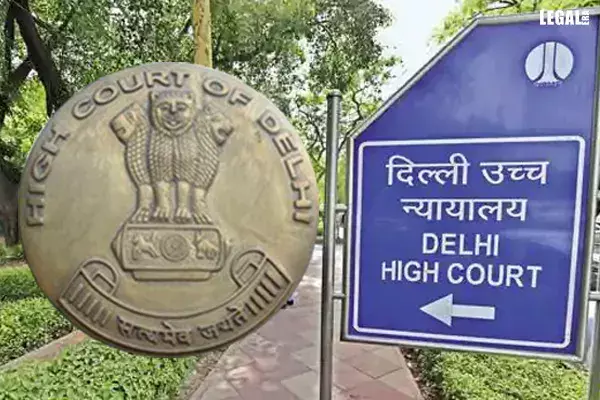Delhi High Court: Software Development Services Offered by TCS International cannot be Used as Comparable as Ge India Business Services is engaged in ITES/BPO
The Delhi High Court while adjudicating an appeal filed against the order of Income Tax Appellate Tribunal held that, Software;

Delhi High Court: Software Development Services Offered by TCS International cannot be Used as Comparable as Ge India Business Services is engaged in ITES/BPO
The Delhi High Court while adjudicating an appeal filed against the order of Income Tax Appellate Tribunal (in short- Tribunal) held that, Software Development Services offered by TCS International could not be used as a comparable since the respondent/assessee- Ge India Business Services Pvt. Ltd., was in the business of Indian Information technology-enabled services (ITES) or business process outsourcing (BPO).
The coram comprising of Justices Rajiv Shakdher and Tara Vitasta Ganju observed that TCS International is in the business of rendering software development services, which, inter alia, include maintenance and updating of software, as per the requirements of the users. In comparison, the respondent/assessee was providing non-development software services, which involved the purchase of software for provisioning services.
The respondent/assessee filed its Return of Income (ROI), which was processed under Section 143(1) of the Income Tax Act, 1961. The case of the assessee’s was selected for scrutiny, and accordingly, notice was served upon it. During scrutiny, it came to light that the assessee had entered into international transactions that involved providing Information technology-enabled services (ITES) to its AEs.
The Assessing Officer (AO) referred the matter to the Transfer Pricing Officer (TPO) for determination of the Arm’s Length Price (ALP) since the value of the transactions during the relevant period was more than Rs. 15 crores.
The assessee had submitted a Transfer Pricing Study Report that adopted the Transactional Net Margin Method to arrive at the ALP concerning international transactions entered into by the assessee with its AEs regarding ITES.
The eight comparables referred to in the TP Study Report were examined and analyzed by the TPO. The TPO, after applying various filters, concluded that the comparable were not suitable for determining the ALP.
The TPO was of the determined view that some of the comparables that had been rejected by the assessee were, in fact, suitable. The TPO, thus, zeroed in on the seven comparable.
The Tribunal excluded the four comparables from the list selected under the Transactional Net Margin Method (TNMM) Method for arriving at the ALP concerning international transactions entered into by the respondent/assessee with its AEs. The four comparable were ATPL, I-Gate, Infosys, and TCS International.
With respect to the ATPL, the Tribunal held that it cannot be considered comparable since, in the period under consideration, an entity going by the name Ascent Infoserve Ltd. amalgamated with ATPL.
In the case of I-Gate, the Tribunal discovered that an entity going by the name I-Gate Global Solutions Sdn. Bhd. had amalgamated with I-Gate. The financials of I-Gate included the results of the amalgamating company. The I-Gate was found to be unfit for comparison to determine the ALP.
Consequently, with respect to Infosys, it was revealed that it had acquired an entity, i.e., McCamish Systems LLC. The Tribunal considered this an extraordinary financial event and hence excluded it from the final set of comparable.
As far as the TCS International was concerned, the Tribunal observed that it is in the business of rendering software development services, which, inter alia, include maintenance and updating of software as per the requirements of the users. On the other hand, the respondent/assessee was providing non-development software services, which involved the purchase of software for provisioning services.
The department contended that the Tribunal must have borne in mind the business environment, the nature and functions performed by the tested party and comparable entities, value addition in respect of products and services provided by the parties, the business model, and the assets and resources employed.
The assessee highlighted that the Tribunal had excluded three out of the four comparable, i.e., ATPL, I-Gate, and Infosys, upon concluding that the entities had been subjected to an extraordinary event. Therefore, it did not fall into the category of fit comparable. TCS International was providing software development services and, hence, was not functionally similar to an entity such as the assessee, which was provisioning non-development software services.
The Court ruled that the Tribunal was right in excluding ATPL, I-Gate, and Infosys on the ground that an extraordinary financial event had occurred, rendering them unfit comparable to determine the ALP.
“Likewise, quite clearly, the services offered by TCS International [not TCS E-Serve Ltd.] could not be used as a comparable, since the respondent/assessee was, admittedly, in the business of ITES/BPO/FSS. For each of these services that the respondent/assessee offered, it purchased, it appears, proprietary software and did not develop, maintain and update its own software for the use of its customers,” the Court observed.
Accordingly, the Court dismissed the appeal.

